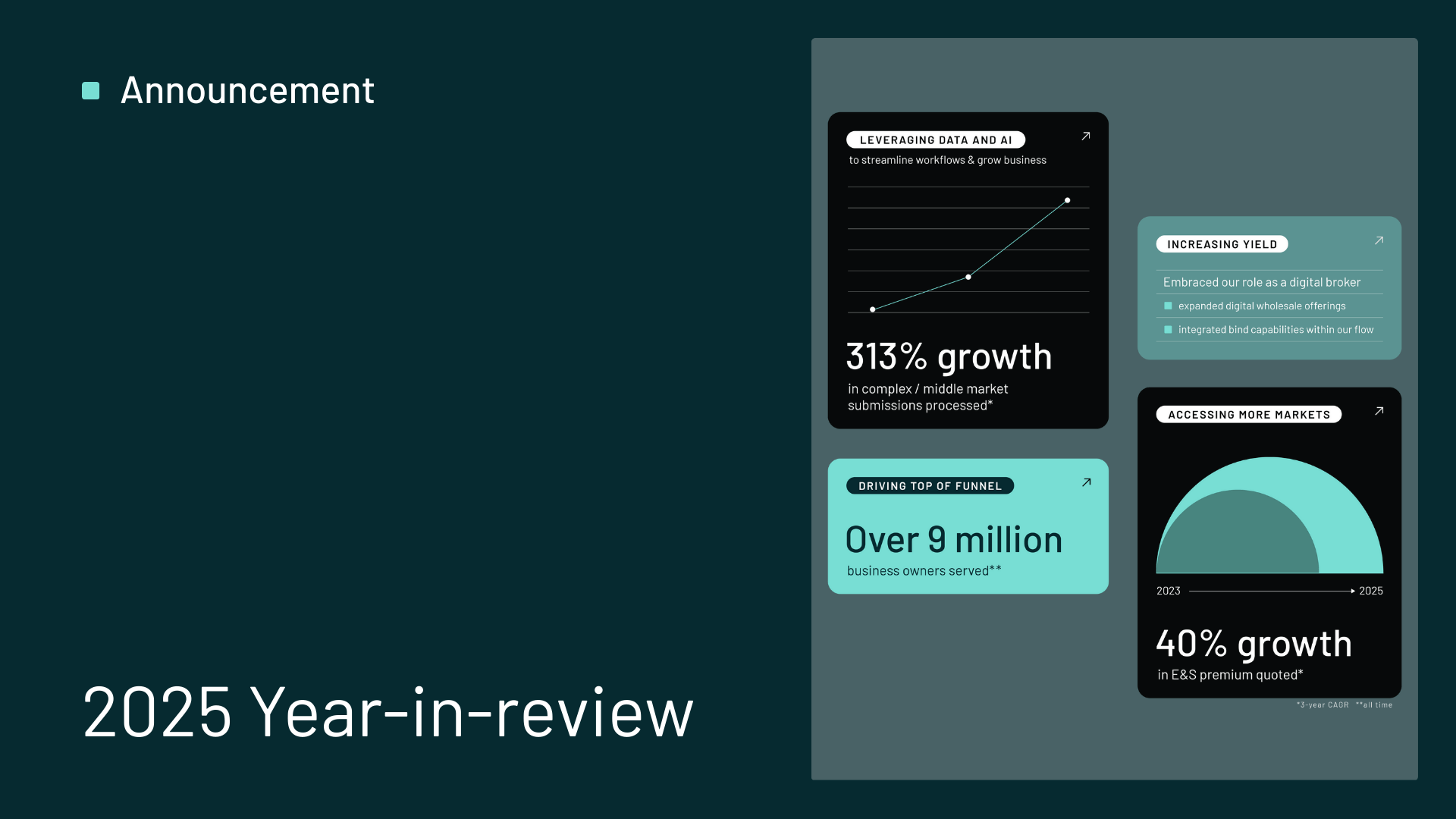The Future of Insurance Belongs to Underwriting Discipline
Our CTO describes the key to winning in commercial insurance

Commercial insurance is a complex and fractured marketplace.
There are over 19,000 ways in which a business can be categorized. Pair that with thousands of commercial policy and coverage combinations not to mention lower premiums than many other insurance categories and it’s easy to understand why brokers and insurers alike struggle with small commercial. How do we both navigate this complexity and build business profitably?
Underwriting discipline.
Over the next five years, underwriting discipline will determine the winners and losers in commercial insurance. According to analysts at Assured Research, there is a significant disparity in the return on equity (ROE) achieved by insurers in the top tiers of the property and casualty (P&C) industry versus those in the bottom tiers.
Specifically, of the 355 P&C insurance companies included in the research:
- 33 had an ROE of 0 to -5 percent
- 93 had returns of 0-5 percent
- 148 had returns of 5-10 percent
- 81 had returns of 10-20 percent or more
What creates this dramatic discrepancy between the top and bottom in ROE?
The defining characteristic of the P&C insurers with higher overall profits is not investment returns as is often believed (and glamorized), but rather the companies’ commitment to underwriting discipline.
Put simply, the risks a company chooses to write (and not write), the basic blocking and tackling of insurance, is the extraordinary predictor of profitability. This creates an unprecedented opportunity for those organizations with the fortitude to focus on underwriting discipline.
How We Lost Focus on Underwriting
Why isn’t underwriting discipline the norm?
Over time, there are three primary reasons most P&C insurers lose focus on underwriting:
1) FOMO: Fear of Missing Out
Far too many insurers are concerned with passing up on opportunities for fear that a competitor will write the business and win the day -- and that customer will be lost for life. That’s simply not true.
It’s ok to pass on customers - in fact you have to. There are literally tens of millions of potential customers and as demonstrated by the variance in ROE not every customer is a good customer for every carrier or broker. Further still, not writing one line or coverage does not mean the customer is totally lost –there are lots of opportunities even within a single customer to help protect them from insurable risks.
In an environment of challenging organic growth, turning away opportunities can be a stressful practice. However, chasing new business outside your underwriting sweet spot is never the long-term solution to organic growth concerns and is what leads to long term losses in small commercial.
2) Reactivity
According to Assured Research using MarketStance data, the insurance companies who proactively define target markets are by far the most profitable. For example, premium penetration in Professional Services is relatively low (0.9 percent), while contributing a whopping $607 billion to US gross domestic product (GDP).
By comparison, Agriculture and Forestry, which has a 4.2 percent premium penetration, only contributes $75 billion to the GDP. This suggests an enormous untapped opportunity in the professional services market.
Studying the market and understanding where the puck is going is as important as optimizing only the things an insurance company has historically done well. Remember, much of the risk that is out there is still uninsured so finding new markets and being thoughtful and proactive in approaching them is key.
3) Sunk Cost Fallacy
Evaluation and triage of submitted risks has historically been an expensive component of organic growth.
If an underwriter has to spend days if not weeks evaluating a risk, there is a propensity to feel the company must write the risk in order to justify the underwriter’s time. This is known as a sunk cost fallacy, an error in analysis due to subjective or irrelevant data. Forcing risks that don’t match target appetite to satisfy sunk cost perceptions often lead to unprofitable business. This sunk cost fallacy can also apply to marketing dollars where carriers feel they need to underwrite everything they see to justify their marketing spend.
Make Underwriting Discipline Easy
This may be our past, but it doesn’t have to be our future. Solving for organic growth through underwriting discipline is exactly the problem Bold Penguin is solving. We do this in three ways:
- Generate verified inbound opportunities that match the unique risk profiles of agents, brokers and insurers—no need to chase off-target new business.
- Provide advanced feedback and analytics to expose target market opportunities based on the flow within the Bold Penguin Exchange—no more reactivity.
- Triage and generate real time rates for risks based on customizable risk factors, thereby reducing the evaluation time per risk from days or weeks to hours or even minutes—no more sunk cost fallacy.
The future of profitable organic growth is in your control in the form of on-demand underwriting discipline.
The future of insurance belongs to the bold.
Ben Clarke is the co-founder and CTO of Bold Penguin. He can be reached for further information or comment via email at ben@boldpenguin.com.
P.S. Connect with Bold Penguin on LinkedIn for more articles and insights on commercial insurance.



.png)